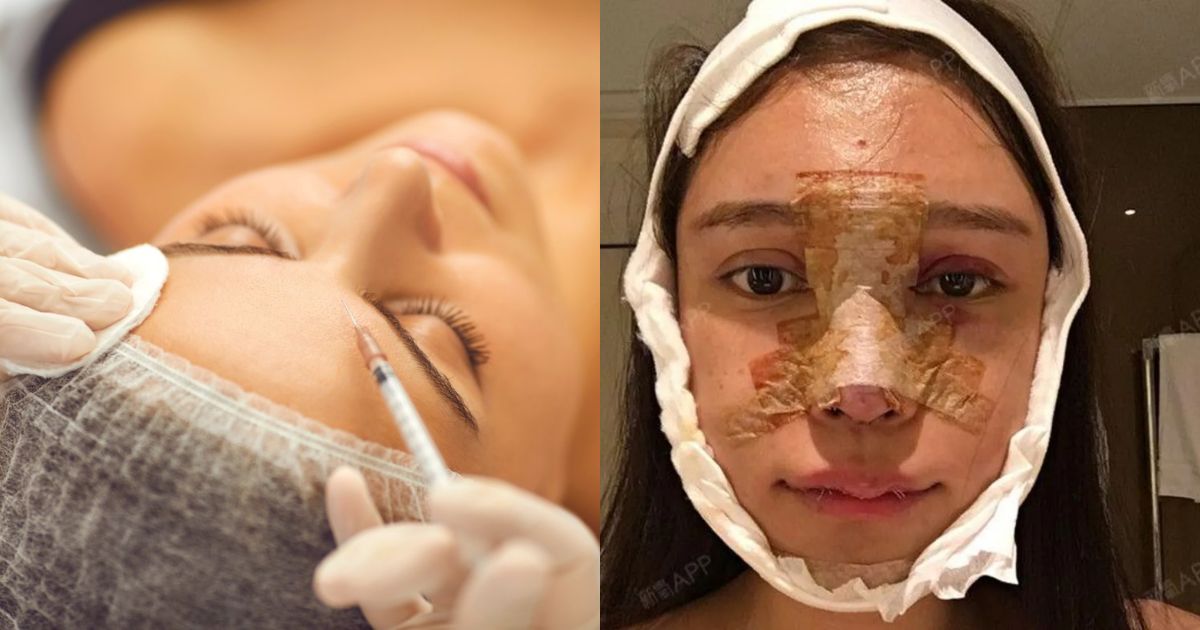Abby Wu, one of the first cosmetic surgery influencers in China, went under the knife for the first time when she was just 14. Her mother took her to get liposuction to remove fat from her belly and legs when she gained around 20kg during a hormone treatment for an illness. She was nervous, and her mom stepped in. “Just be brave and walk in. You’ll become pretty once you’re out,” she said.
Speaking with the BBC, Abby described how traumatic the experience was for her, but that all changed when she kept walking into making herself “perfect.” Now 35, the influencer says she has no regrets about the 100 procedures she has had so far. She spent over half a million dollars, but believes it was all worth it. “I don’t think I’ll ever stop my journey of becoming more beautiful,” says Abby.
She is not the only one who became obsessed with changing their appearance through cosmetic surgery. The popularity of going under the knife has increased in the last 20 years in China, particularly among the youth. The survey says every year, at least 20 million Chinese people pay for some kind of procedure; eighty percent of them are women, with the average age being 25.
Once considered a taboo, the boom began with the popularity of Western beauty standards, anime fantasy, and K-pop influence. But now, people are going for more bizarre and dangerous procedures like Botox injected behind the ears to create a smaller face illusion. Before, it was double eyelids, but now the youth are enthusiastic about lower eyelid surgery, buying themselves wide anime-girl eyes. It’s not just a sculpted jawline anymore; there’s a demand for narrowing the space between lip and nose, hence the upper lip shortening boom.
Interestingly, much of this “make me perfect” beauty is only reflected on the screen, with filters and special lights. In reality, the effect is far from flawless and often uncanny, and it can’t be described as “human.” For people like Abby Wu, who appears in front of their followers through the screen, it is a blessing.
Not everyone could be as lucky as her. To capture the booming market, clinics are rampantly being launched everyone across the country. However, there’s a real shortage of qualified professionals and a large number of practitioners without licenses. As a result, there’s also a rise in botched surgeries that could cause serious and lifelong injuries.
In 2020, Gao Liu, a popular actress, received nose surgery from Dr. He Ming at She’s Times, a Guangzhou clinic. The doctor had not obtained his licensed plastic surgeon status, and in his unqualified hands, Liu’s nose tip turned black and died. “My face was disfigured and I was very down. It ruined my acting career,” she said.
Following the incident, the clinic was closed down, and the doctor was banned from practicing for six months. However, there are many other clinics that soon replaced She’s Times and continue to turn up all across the nation. Dr. Yang Lu, a licensed surgeon, noted, “I’ve seen many patients whose first surgery was botched because they went to unlicensed places. Some even had surgery inside people’s homes.”
Notably, the toxic beauty standards have spread like venom in China. Even the job market now demands a certain look. According to BBC, a quick search on recruitment platforms will reveal employers demanding an “aesthetically pleasing” receptionist or “appealing look” for an administrative role.
Going under the knife to look good on social media? Plastic surgery has become one of China’s biggest beauty secrets https://t.co/i1ZgUTJK4n pic.twitter.com/mRrqYY9WxV
— CGTN (@CGTNOfficial) September 26, 2017
This peer pressure is being exploited by some illegal clinics that target these vulnerable women, desperate to look “more beautiful” to land their desired jobs. But in most of these cases, the surgeries do nothing for the job role. BBC reported about Da Lan (not her real name), who was offered a “beauty consultant” role at a clinic, but her manager scammed her into getting surgery to “fit” the role. She didn’t have a full hour to decide and underwent a double eyelid surgery that cost her three times the monthly salary of the role she was offered.
The clinic lured her into getting a so-called “beauty loan.” Guess what? She quit the job after 10 days and was only paid 303 yuan ($42). Although she later paid off the debt with the help of her friend, her incident just proves the real reason behind this extraordinary boom in the cosmetic surgery industry in China.
While some who went under the knife say, “If I could go back to how I looked before surgery, I’d be quite happy,” others think, “Should I get another nose surgery.”













